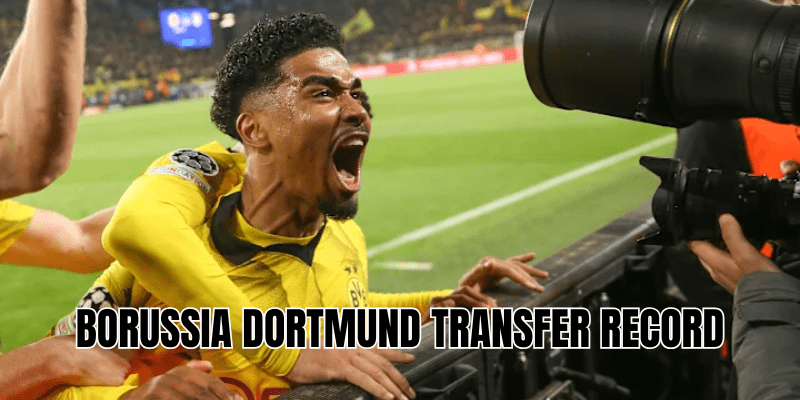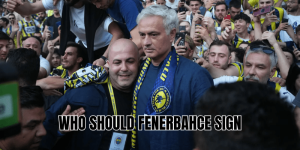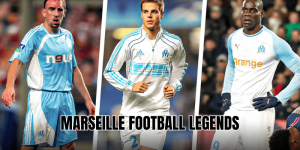When we speak of the Borussia Dortmund transfer record, we’re diving into one of the more fascinating paradoxes in elite football: a club that prides itself on developing talent, selling high, yet also occasionally breaking its own banks to invest in stars. In this article, AnnuGoal invites you behind the scenes of Dortmund’s biggest arrivals and departures, to explore how their transfer strategy has shaped the identity of the club—and where that record stands today.
Dortmund’s philosophy: breeder, trader, occasional splurger
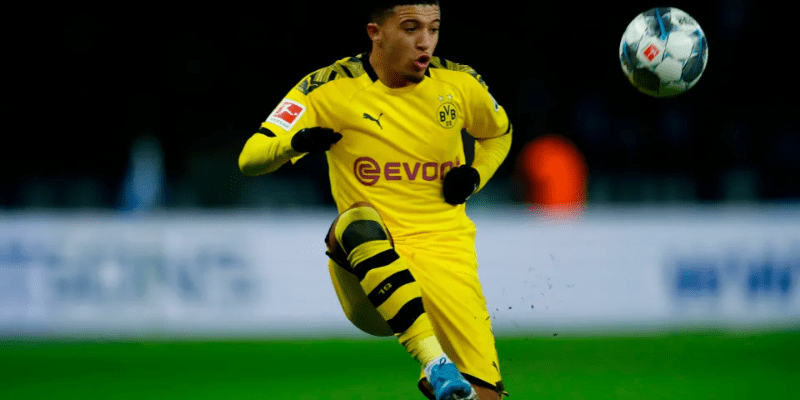
Borussia Dortmund’s model over the past two decades has largely revolved around buying young, promising talents, giving them a platform, and then reaping profits when they leave. This cycle has built the club’s sustainability and reputation. But now and then, when ambition demands it, BVB has gone all-in and rewritten its transfer record. What that says about the club’s direction matters.
To understand the record, we must split it two ways:
- Record signings (most expensive arrivals)
- Record sales (highest outgoing transfer fees received)
Let’s tackle each—and then reflect on what this means for Dortmund now.
Record Signings: how much has Dortmund ever spent?
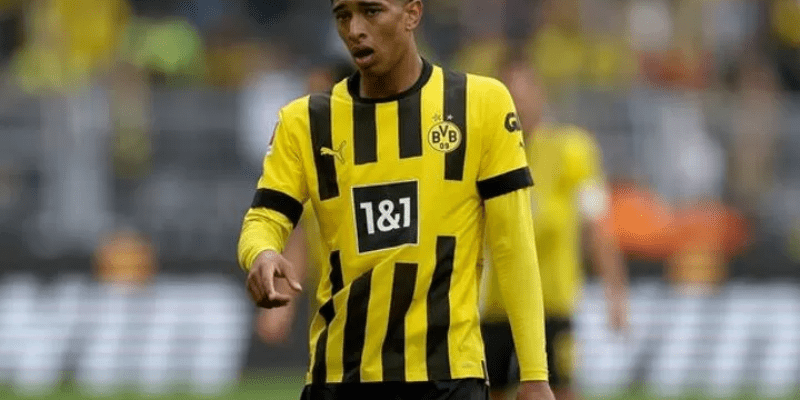
The benchmark: Ousmane Dembélé
The most expensive signing in Borussia Dortmund transfer record history came in 2016 when Dortmund splashed €35 million to acquire Ousmane Dembélé.
What’s striking: that same transfer also became Dortmund’s record sale, when Dembélé moved to Barcelona later, meaning he towers in both directions of the transfer ledger.
Close challengers
While Dembélé’s record remains untouchable, a few other deals have come close:
- Sébastien Haller arrived from Ajax for €31 million in 2022.
- Mats Hummels (returning from Bayern Munich in 2019) cost €30.5 million (including add-ons).
- Jude Bellingham had cost €30.15 million in 2020, making him then one of the highest investments.
- Others like André Schürrle, Karim Adeyemi, Donyell Malen, and Felix Nmecha hover around €30 million territory.
In mid-2025, Dortmund signed Jobe Bellingham (younger brother of Jude) from Sunderland in a deal reportedly worth €33 million—which would rank as the second-most expensive in the club’s history, behind Dembélé.†
These figures suggest that while Dortmund is capable of major signings, the ceiling hasn’t shifted much upward in recent years.
Record Sales: how much has Dortmund ever earned?
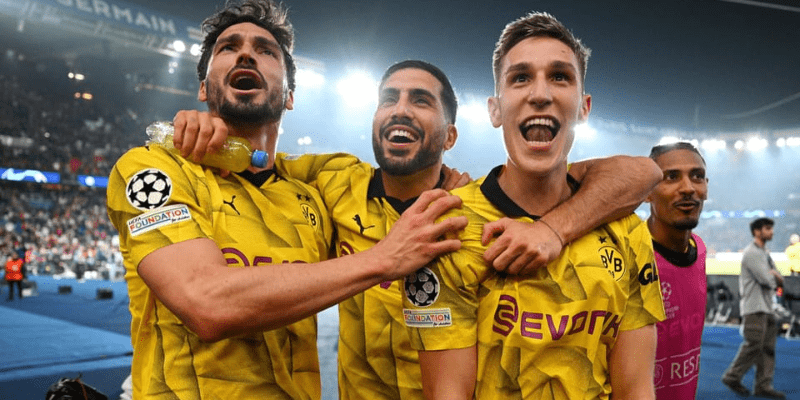
When it comes to selling, Dortmund has been extraordinarily bold—and lucrative. Their outgoing transfer record is far more eye-watering.
The king: Ousmane Dembélé to Barcelona
Dembélé’s move to Barcelona in 2017 is Dortmund’s biggest sale ever: €135 million (including add-ons and adjusted numbers). That single deal crowns the club’s outgoing records.
Other massive exits
Beyond Dembélé, several names dominate Dortmund’s big-money exits:
- Jude Bellingham to Real Madrid in 2023 – ~€113 million
- Jadon Sancho to Manchester United in 2021 – ~€85 million
- Jamie Gittens also climbed into top sales
- Christian Pulisic to Chelsea in 2019 – ~€64 million
- Pierre-Emerick Aubameyang, Erling Haaland, Henrikh Mkhitaryan, Mario Götze, Mats Hummels all decorated the list with multi-tens of millions
These sales lie at the heart of Dortmund’s model: buy wisely, develop internally, then cash in at a premium.
Why that record balance matters
A sustainable business model
Unlike clubs that routinely overextend, Dortmund’s ability to sell stars at a high profit gives them financial stability and freedom. The Borussia Dortmund transfer record in sales far outpaces their spending record, proving the model is profitable.
Ambition vs restraint
Even though their biggest arrivals remain modest relative to giant spending in world football, Dortmund has shown willingness to break previous ceilings when talent demands it (e.g. signing Dembélé). The Jobe Bellingham deal suggests they might be inching upward again, though they stop short of wild extravagance.
Pressure on development
When you’ve sold Jude for €113 million or Dembélé for €135 million, fans expect subsequent generations to carry on the legacy—meaning pressure on youth, scouting, and smart recruitment is relentless.
The current state: records held and what’s next
As of 2025:
- Most expensive arrival: Ousmane Dembélé (€35 million)
- Second-most expensive arrival: Jobe Bellingham (~€33 million)
- Most expensive sale: Ousmane Dembélé to Barcelona (~€135 million)
- Second-highest sale: Jude Bellingham to Real Madrid (~€113 million)
The fact that Dembélé tops both lists is poetic: Dortmund invested heavily in him and then earned their biggest windfall. The big question now: will Dortmund ever break the €40M barrier for an arrival? Or surpass €150M outgoing? The Jobe Bellingham acquisition hints at bolder moves ahead.
Impact on squad, ambition and identity
Dortmund’s transfer record model influences much more than financials:
- Squad dynamics: big signings raise expectations; developing youth becomes mission-critical.
- Brand value: low-to-mid spending but high returns builds a reputation for smartness, not just wealth.
- Ambition signal: breaking a club record sends a strong message—to fans, rivals, and players—that BVB isn’t just a stepping stone club.
- Risk balance: overpaying brings danger, underpaying yields mediocrity. The fine line is what Dortmund walks best.
Final Thoughts
Borussia Dortmund transfer record history captures the dual soul of this club—modesty in spending, extravagance in selling, and boldness when ambition strikes. As of now, Dembélé’s €35 million arrival and his even greater €135 million exit remain the apex of BVB’s transfer ledger. But with moves like Jobe Bellingham edging upward in cost, the ceiling may be poised to shift again.
If you want a constantly updated list of Dortmund’s top 10 signings or sales, or an analysis of BVB’s next potential record move, dive dee. Watch this space—because in football, records are made to be broken. AnnuGoal hopes you like this artical.
